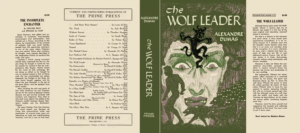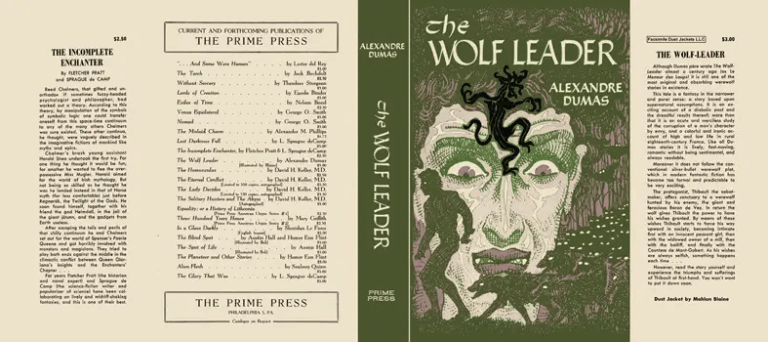Torno, da un computer serio, a provare a parlare di fumetti. E lasciando da parte Jan Dix, che l’incazzatura per la recensione perduta non mi è ancora passata, lo faccio con questi due vecchi 100% Cult Comics che propongono in Italia un altro prodotto Top Cow, ad opera di J. Michael Straczynski, l’uomo che dovrebbe proprio trovarsi un nome d’arte o continueremo a chiamarlo Stracchino.
Midnight Nation #1 – Il male che conosci
– contiene: Vita nel mondo della materia (Living in the Material World, da Midnight Nation #1 dell’ottobre 2000);
Cadendo nelle crepe (Falling through the cracks, da Midnight Nation #2 del novembre 2000);
Aspettami (Wait for me, da Midnight Nation #3 del dicembre 2000);
Il male che conosci (The Devil you know, da Midnight Nation #4 del gennaio 2001);
Passato prossimo, presente (Past Present, Present Tense, da Midnight Nation #5 del marzo 2001);
A metà strada dal giudizio (Midway to Judgement, da Midnight Nation #6 del aprile 2001).
Midnight Nation #2 – Oltre la strada
– contiene: Decisioni, decisioni, decisioni (Decisions, decisions, decisions, da Midnight Nation #7 del giugno 2001);
Da qualche parte fra qui e là (Somewhere between nearly there and there, da Midnight Nation #8 del luglio 2001);
Spiegazioni, valide e no (Explanations, valid and otherwise, da Midnight Nation #9 del gennaio 2002);
Alla deriva (Drifting Away, da Midnight Nation #10 del marzo 2002);
La ruota (The wheel, da Midnight Nation #11 del giugno 2002);
Oltre la strada (Beyond the Road, da Midnight Nation #12 del luglio 2002);
Cose preziose (Precious Objects, da Midnight Nation #1/2 del marzo 2001).
 Prima di iniziare a parlare del fumetto, è sempre piuttosto divertente spalare un po’ di ingiurie sui traduttori Panini, nella fattispecie Pier Paolo Ronchetti. Certo, un divertimento simile alla risata isterica, un ridere per non mettersi a piangere, perché c’è ben poco da stare allegri. Quasi ogni titolo era una citazione. Non solo non sono stati tradotti bene quasi mai, ma ne avessero pigliata una. Living in the material world? Mondo materiale, altro che mondo della materia. E comunque è un album di George Harrison con omonima canzone. Falling through the cracks? Un modo di dire che significa "essere liquidati", nel senso brutto. E che di certo non va tradotto letteralmente con "cadendo nelle crepe", santo dio. Ma che, se è per questo, è anche una canzone dell’album d’esordio dei Bg Wreck. Wait for me? Aspettami, certo, e non varrebbe la pena di segnalare che è il titolo di almeno due album se non fosse per i precedenti. Viene il sospetto che ogni titolo abbia a che fare con la musica. O dovrebbe venire, almeno. The Devil you know? Un modo di dire, ma anche un album rock. Past Present, Present Tense? Tempo passato, tempo presente, ma anche un… indovinate? No, non un album ma due: Present Tense dei Sagittarius e Past Present dei Clannad. Tutte coincidenze, magari. In fin dei conti si tratta di modi di dire piuttosto diffusi. Già. E infatti non c’è nessuna citazione in Midway to Judgement. E neanche in Decisions, decisions, decisions. Non che io abbia trovato, almeno. Ma se Somewhere between nearly there and there mi ricorda Somewhere between heaven and hell (e sicuramente non è "da qualche parte fra qui e là", per cortesia), Drift Away è celeberrima, e The Wheel – lo sanno tutti – è tra le altre cose un album di Rosanne Cash. Ora, io non so se in effetti Stracchino abbia voluto inserire tutti questi riferimenti. E’ un fatto che quasi tutte queste canzoni hanno un testo che rimanda alla trama del fumetto e non stonano tra di loro, diventando una specie di colonna sonora. E allo Stracchino piace giocare con le contaminazioni di media, questo lo sappiamo.
Prima di iniziare a parlare del fumetto, è sempre piuttosto divertente spalare un po’ di ingiurie sui traduttori Panini, nella fattispecie Pier Paolo Ronchetti. Certo, un divertimento simile alla risata isterica, un ridere per non mettersi a piangere, perché c’è ben poco da stare allegri. Quasi ogni titolo era una citazione. Non solo non sono stati tradotti bene quasi mai, ma ne avessero pigliata una. Living in the material world? Mondo materiale, altro che mondo della materia. E comunque è un album di George Harrison con omonima canzone. Falling through the cracks? Un modo di dire che significa "essere liquidati", nel senso brutto. E che di certo non va tradotto letteralmente con "cadendo nelle crepe", santo dio. Ma che, se è per questo, è anche una canzone dell’album d’esordio dei Bg Wreck. Wait for me? Aspettami, certo, e non varrebbe la pena di segnalare che è il titolo di almeno due album se non fosse per i precedenti. Viene il sospetto che ogni titolo abbia a che fare con la musica. O dovrebbe venire, almeno. The Devil you know? Un modo di dire, ma anche un album rock. Past Present, Present Tense? Tempo passato, tempo presente, ma anche un… indovinate? No, non un album ma due: Present Tense dei Sagittarius e Past Present dei Clannad. Tutte coincidenze, magari. In fin dei conti si tratta di modi di dire piuttosto diffusi. Già. E infatti non c’è nessuna citazione in Midway to Judgement. E neanche in Decisions, decisions, decisions. Non che io abbia trovato, almeno. Ma se Somewhere between nearly there and there mi ricorda Somewhere between heaven and hell (e sicuramente non è "da qualche parte fra qui e là", per cortesia), Drift Away è celeberrima, e The Wheel – lo sanno tutti – è tra le altre cose un album di Rosanne Cash. Ora, io non so se in effetti Stracchino abbia voluto inserire tutti questi riferimenti. E’ un fatto che quasi tutte queste canzoni hanno un testo che rimanda alla trama del fumetto e non stonano tra di loro, diventando una specie di colonna sonora. E allo Stracchino piace giocare con le contaminazioni di media, questo lo sappiamo.
Ma direi che come cappello introduttivo è stato un po’ troppo lungo, quindi iniziamo ad entrare un po’ nel merito.
Non è male, questa roba. La trama si mantiene sempre su buoni livelli e l’ambientazione, che a tratti strizza l’occhio a Io sono leggenda (il libro, eh, per piacere) e Neverwhere, è decisamente affascinante nella sua semplicità. Un uomo perde la sua anima e deve affrontare un viaggio per recuperarla, insieme ad una guida. E lungo la sua strada incontrerà un mucchio di disgraziati semi-vampireschi che in passato hanno fallito nella sua stessa impresa. Ma nulla è come sembra, l’intreccio a sfondo teologico (o meglio, per dirla alla Kevin Smith, intriso di "mitologia cristiana") regge bene e non è mai eccessivo o retorico. La psicologia del personaggio principale è ben tratteggiata e la storia è di quelle che sarebbero piaciute a Tolkien, una storia di sacrificio estremo, nel nome della speranza e del bene comune. Gli ultimi capitoli, per bellezza e potenza narrativa, tolgono letteralmente il fiato, l’epilogo con il confronto tra David e se stesso mettono i brividi.
Un fumetto da recuperare. Assolutamente.
E da leggere con la giusta colonna sonora.
Ah, dimenticavo, alcuni ragazzi hanno provato a trarne uno spezzone filmato. Qui.








2 Comments
impbianco
Posted at 15:41h, 01 JuneQuesto fumetto è uno dei migliori che abbia letto ultimamente, lo Stracchino è stato veramente bravo! ^^
X-Bye
Shelidon
Posted at 10:01h, 03 JuneSì. Lo consiglio proprio, e in fretta perché so che sta andando esaurito (e di ristampa degli arretrati in casa Panini non se ne parla).